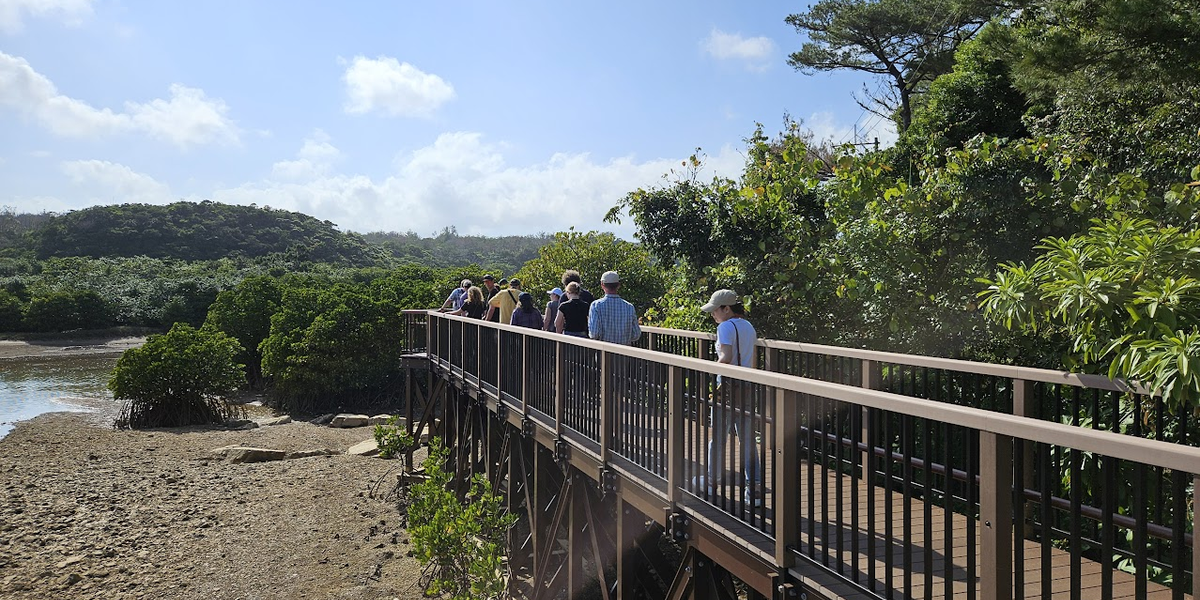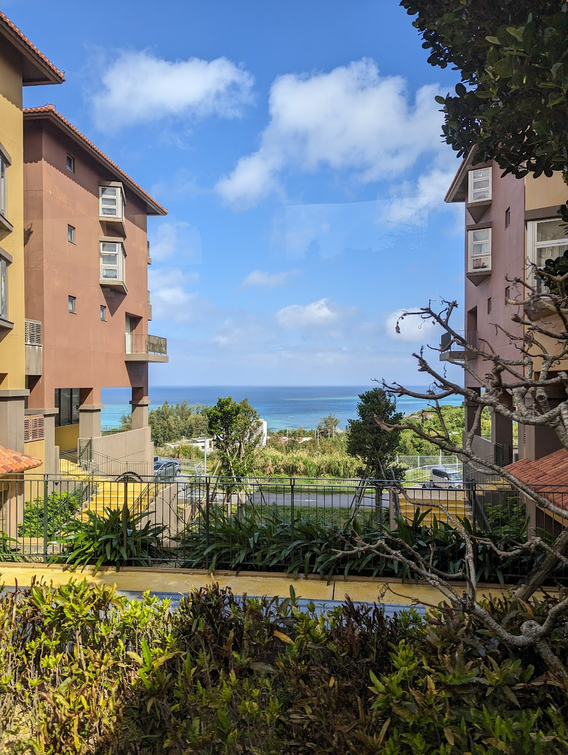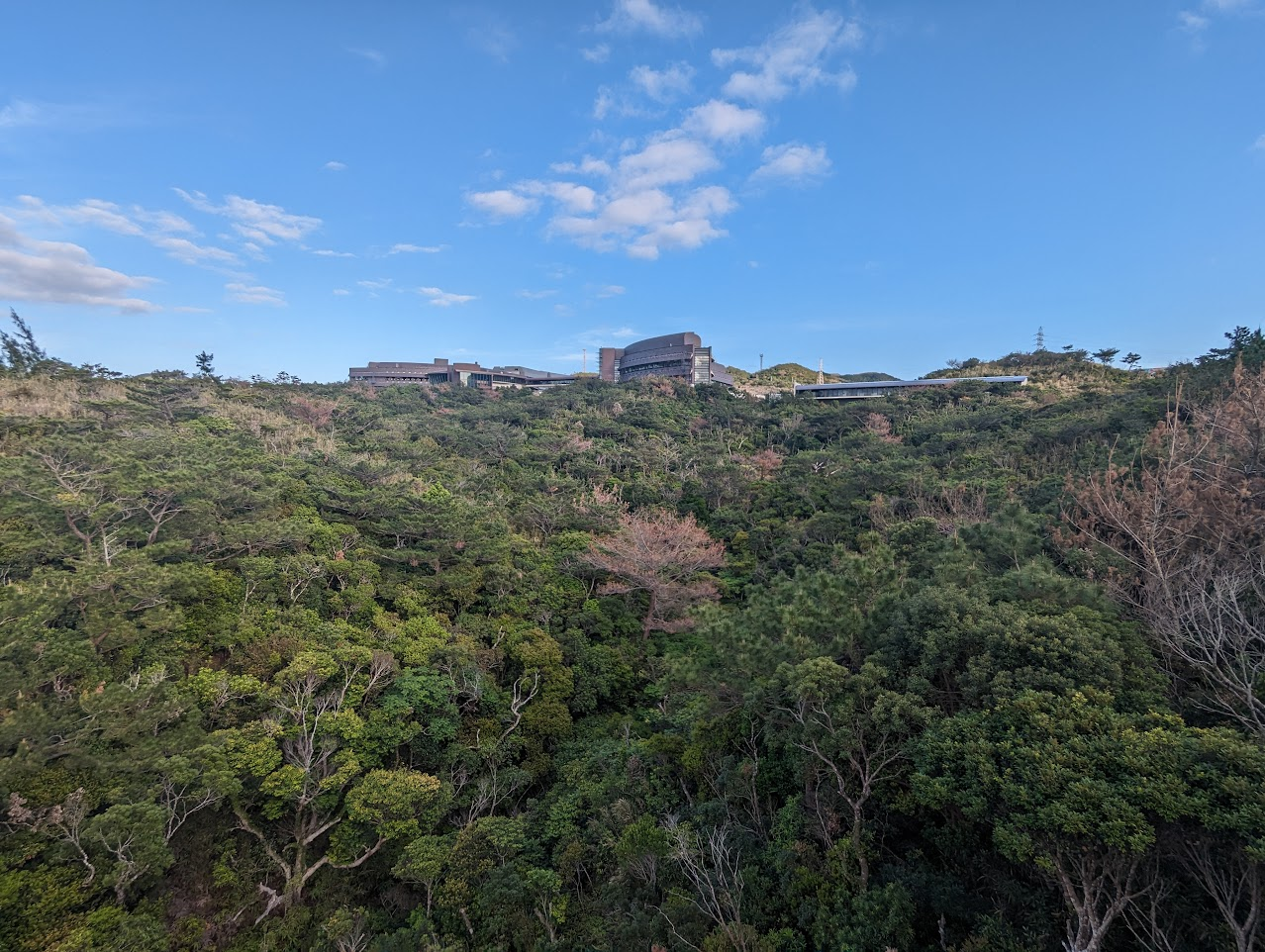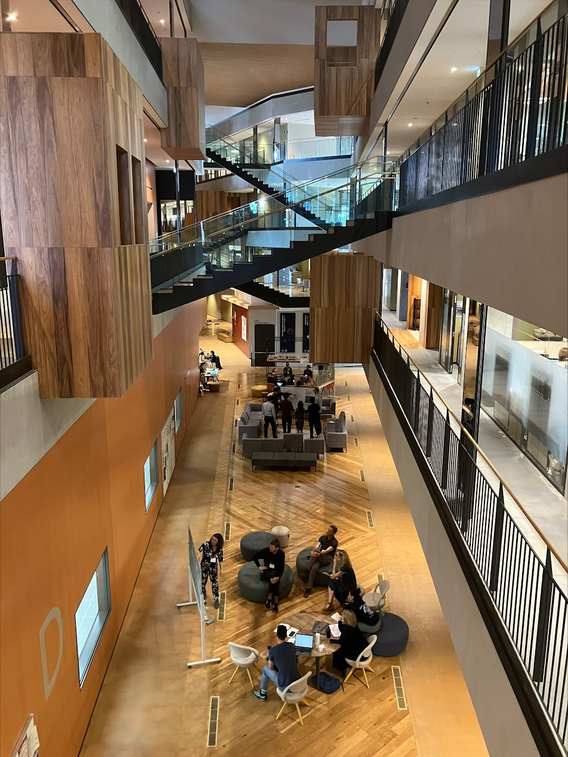
Qianna Xu knew she would fall in love with the Okinawa Institute of Science and Technology (OIST) when she signed up for a workshop there at the end of March. But even she was blown away by her experience as a visitor there – the scenery of Japan’s southernmost island chain was surreal and the spirit of the scientific community there left her feeling refreshed.
“I’ve been to large-scale conferences before, but I don't think I got nearly as many interactions with anybody compared to this one week workshop. ” says Xu. The workshop she attended at OIST was specifically designed for her field, which more broadly looks at modeling “functional diversity” across multiple types of ecosystems – in Minnesota, she’s interested in how different types of plants (legumes, cool and warm weather grasses, etc) affect prairie ecosystem functioning.

Her experience at the OIST workshop highlights the value of development opportunities for young career scientists. “It’s super powerful to see how people with different cultural and academic backgrounds talk about the same topic,” she says. Xu left with a new set of tools to utilize in her postdoctoral research project here in Minnesota at the College of Biological Sciences, but it also provided her with an invaluable international community to lean on as her career continues to evolve and mature.
An institute inspired
On the first day of the workshop, Xu awoke to the sound of waves. “Housing for visiting researchers is two minutes from the beach and a twenty minute walk to campus,” says Xu. The institute is perfectly nestled between a wide range of island ecosystems – coastal reefs, subtropical forests, white sand beaches, bustling urban centers and agricultural land. First thing on the agenda was a full-day field trip to X national park north of the institute to learn about mangrove forests. And then, ice cream.
In the days following, Xu fell in love with the hermit crabs that lived in the smooth beach outside her dorm. But even the campus wowed an enthralled Xu, who walked the grounds every day for workshops, seminars and discussions.
“The island is very small, right? And then there’s the mountain – well, it was more like a hill. The campus was on the hill and was inspired by how the Ryukyu kingdom castles were structured,” says Xu. The modern facilities recalled a bygone era of Japan’s southernmost island chain. “The above-ground walkways between the buildings have glass sections on the floor so you can see the subtropical forests beneath you. It was on another level.”


The people there, she says, were also on another level. The private Japanese institute has unique funding opportunities and a structure with an exceptional capacity to bridge disciplines and push scientific boundaries. Faculty there represent over 50 countries. There are no designated departments or colleges, and the institute has no undergraduate program; students interested in attending must visit as interns or Ph.D. students only.
“There's a high degree of freedom of what kind of research you can do with grant funding there,” says Xu. “They have an evaluation on the outcome, but they mostly care about whether the things that you have worked on have had an impact on the local community and helped the local economy.”
A refining process
Beyond getting acquainted with the faculty and staff at OIST, Xu got lots of valuable time learning from her workshop cohort. Other participants arrived from all over the world to collaborate on their research during the week-long agenda – which was packed full of seminars and breakout sessions.

Instead of sharing what they’d previously published, attendees presented about their current and prospective work, providing valuable insight into the scientific process from the perspective of multiple disciplines. Each participant was given willing and constructive feedback.
“We started with very broad topics, but at the end we focused on the more specific research questions people are interested in and then formed groups to work on those questions,” says Xu. “So that was very neat.” She would recommend the experience to interested grad students, postdocs and researchers in a heartbeat. “I came back with a network of people that I can reach out to in terms of research, but also for career development.”
She also reminds anyone interested in pursuing research opportunities abroad to be open-minded and prepare for subtle or dramatic cultural differences. “Be very, very on time or like very ahead of time,” she laughs. “Because maybe you’ll book a taxi at 10 a.m. and they will show up at like, 9:30.” – Adara Taylor